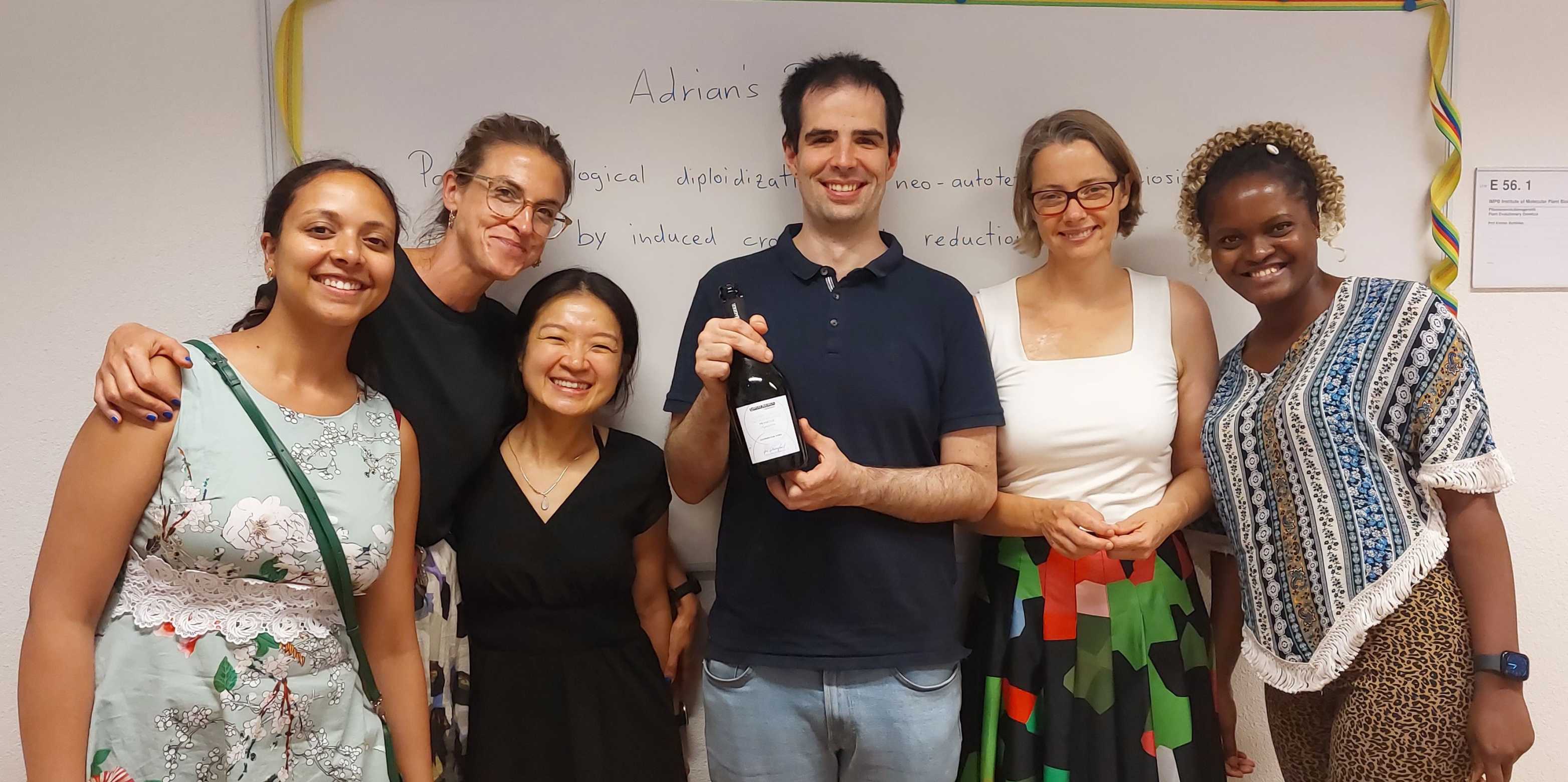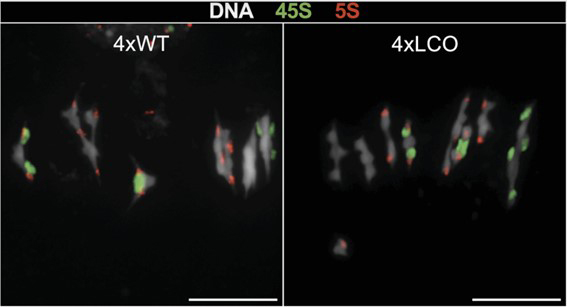Engineered meiosis to stabilize new polyploids in PNAS
Polyploidy can be advantageous in the long run (many crops are polyploid), but it often involves immediate negative consequences, such as unfaithful chromosome segregation during meiosis. Is there any way we can alleviate these undesired effects in newly generated polyploids?

Publication: Partial cytological diploidization of neoautotetraploid meiosis by induced cross-over rate reduction

We just published a collaborative work (with the group of Eugenio Sanchez-Moran, Univ. of Birmingham) in PNAS testing the long-standing hypothesis that reducing the number of meiotic crossovers would improve the stability of new polyploids. We used Arabidopsis thaliana to engineer meiotic recombination to reduce crossover numbers which we confirmed that reduces the chances to form multivalents; structures formed by multiple chromosomes connected by crossovers that destabilizes the segregation. We demonstrated that, indeed, reducing crossover rate reduces multivalent frequency which means a more stable meiosis. However, we observed that the frequency of univalents (unpartnered chromosomes, that are also detrimental) shows a very slight, yet significant, increase. Nevertheless, the overall balance is that meiotic defects are partially alleviated by a reduced crossover rate.
These results do not only contribute to illuminate how polyploid lineages can naturally stabilize during evolution, but also provides a proof of concept of how to artificially stabilize new polyploid lines, a potential way to generate novel crop varieties.
Link to external page PNAS publication